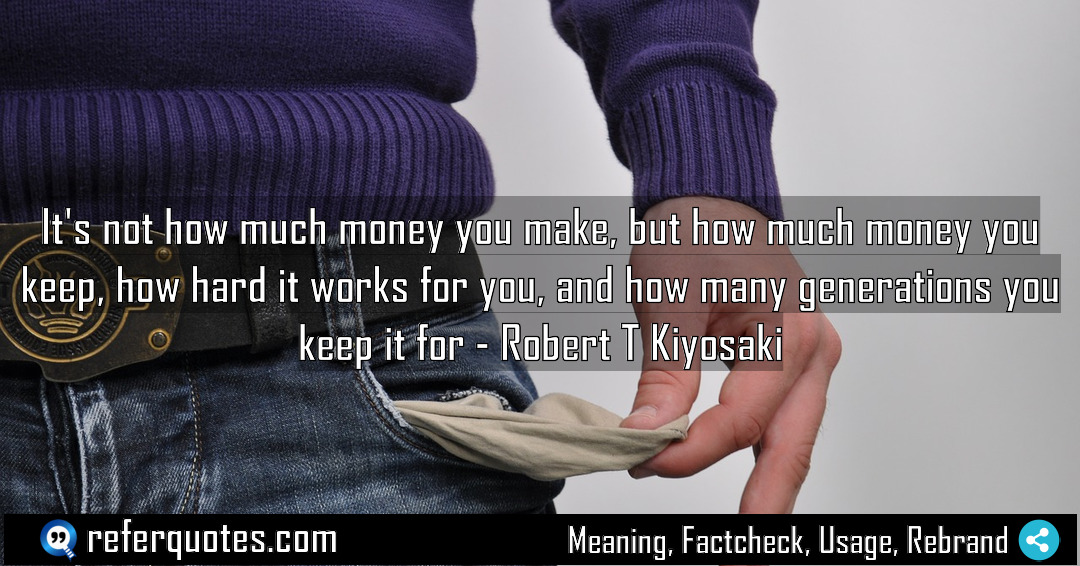“It’s not how much money you make…” This single sentence from Kiyosaki flips the entire script on what we’re taught about wealth.
Share Image Quote:Table of Contents
Meaning
Wealth isn’t about your salary; it’s about your financial intelligence—your ability to preserve, multiply, and sustain capital across time.
Explanation
Let me break this down because it’s a concept I’ve seen play out again and again. Most people are obsessed with the top-line number on their offer letter. But that’s just the starting point. The real magic, the *real* work, happens after you get paid. “How much you keep” is about your spending habits and tax efficiency—it’s the gap between what comes in and what bleeds out. Then, “how hard it works for you” is the entire game of assets. You stop being the sole engine of your wealth and start building other engines—investments, businesses—that work 24/7. And the final piece, “how many generations,” shifts your mindset from a spender to a steward. You’re not just building for a nice car; you’re building a legacy. It’s a completely different financial philosophy.
Quote Summary
| Context | Attributes |
|---|---|
| Original Language | English (3668) |
| Category | Wealth (107) |
| Topics | legacy (11), money (27) |
| Literary Style | insightful (43), structured (37) |
| Emotion / Mood | inspiring (392), reflective (382) |
| Overall Quote Score | 81 (258) |
Origin & Factcheck
This is a core principle from Robert Kiyosaki’s 1997 personal finance classic, Rich Dad Poor Dad. It was published in the United States and has since become a foundational text in the financial independence movement. While the exact phrasing is often paraphrased, the concept is authentically his and is sometimes mistakenly attributed to other wealth thinkers.
Attribution Summary
| Context | Attributes |
|---|---|
| Author | Robert T Kiyosaki (98) |
| Source Type | Book (4032) |
| Source/Book Name | Rich Dad Poor Dad (43) |
| Origin Timeperiod | Contemporary (1615) |
| Original Language | English (3668) |
| Authenticity | Verified (4032) |
Author Bio
Born in Hilo, Hawaii, Robert T. Kiyosaki graduated from the United States Merchant Marine Academy and served as a Marine Corps helicopter gunship pilot in Vietnam. After stints at Xerox and entrepreneurial ventures, he turned to financial education, co-authoring Rich Dad Poor Dad in 1997 and launching the Rich Dad brand. He invests in real estate and commodities and hosts the Rich Dad Radio Show. The Robert T. Kiyosaki book list spans personal finance classics like Cashflow Quadrant and Rich Dad’s Guide to Investing, along with educational games and seminars.
| Official Website | Facebook | X| Instagram | YouTube
Where is this quotation located?
| Quotation | It's not how much money you make, but how much money you keep, how hard it works for you, and how many generations you keep it for |
| Book Details | Publication Year/Date: 1997; ISBN/Unique Identifier: 978-1612680194; Last edition: 2022 Revised Edition, Number of pages: 336 |
| Where is it? | Chapter 3: Why Teach Financial Literacy, Approximate page from 2022 edition: 65 |
